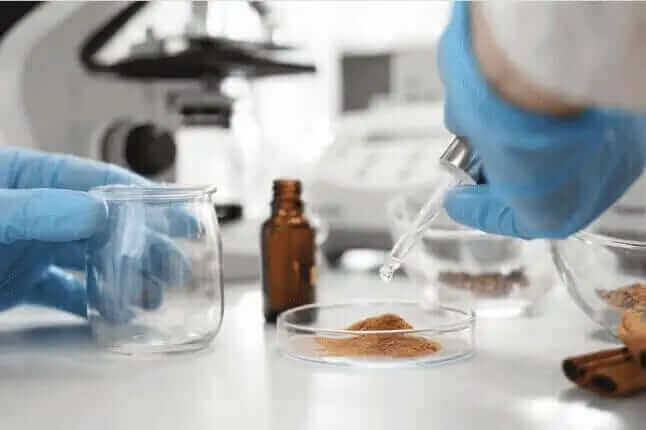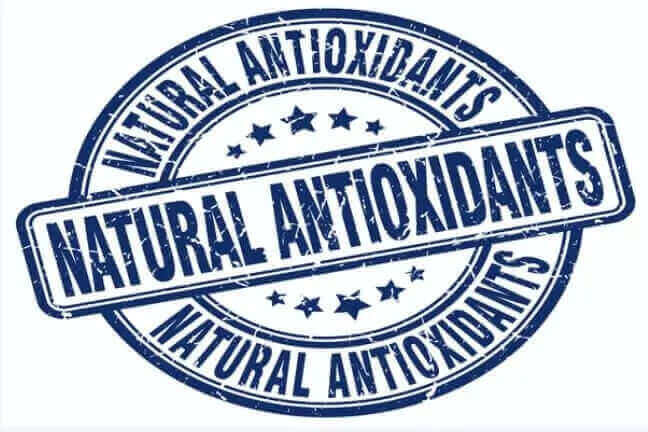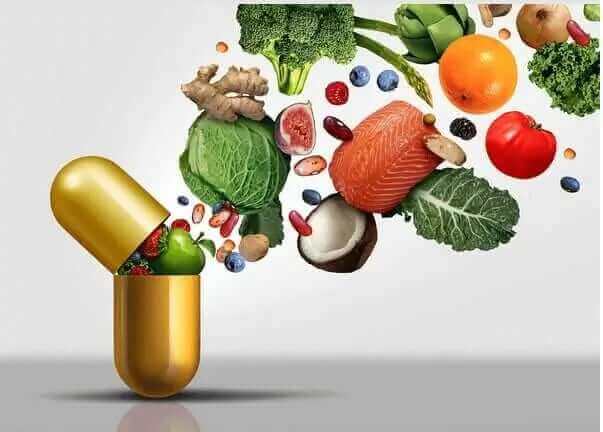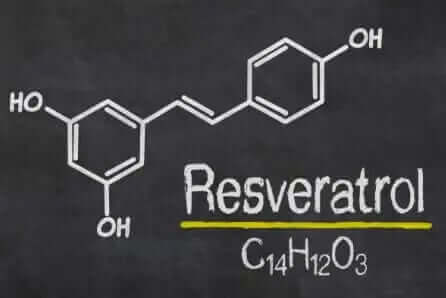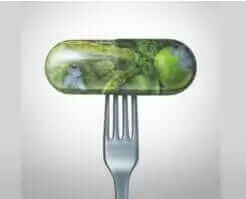Resveratrol: The Complete Guide to This Powerful Anti-Aging Compound
Resveratrol has captured the attention of health enthusiasts and researchers alike as a remarkable natural compound with extraordinary potential for enhancing longevity and vitality. Found abundantly in red grapes, blueberries, and various nuts, this powerful polyphenol offers promising benefits that could transform your approach to healthy aging. Whether you're exploring natural ways to support your wellness journey or seeking scientifically-backed compounds for optimal health, understanding resveratrol's unique properties opens doors to exciting possibilities for your future.
What Makes Resveratrol So Special?
At its core, resveratrol represents nature's gift for cellular protection and renewal. This remarkable compound exists in two forms, but only trans-resveratrol activates the crucial SIRT1 gene responsible for DNA repair—a fundamental process that supports healthy aging at the cellular level. When you consume foods rich in resveratrol or take quality supplements, you're providing your body with tools to maintain youthful function and resilience.
The science behind resveratrol reveals its multifaceted approach to wellness. Research demonstrates that this compound works through multiple pathways to support cardiovascular health, cognitive function, and cellular regeneration. By understanding how resveratrol functions in your body, you can make informed decisions about incorporating it into your daily routine for maximum benefit.
Natural Sources of Resveratrol
Nature provides abundant sources of resveratrol through colorful, nutrient-dense foods. Red grapes, particularly their skins, contain the highest concentrations, which explains the famous "French Paradox"—the observation that French populations enjoy remarkable cardiovascular health despite rich diets, potentially due to moderate red wine consumption.
Top Food Sources Include:
- Red and purple grapes - The richest natural source, especially in the skin
- Blueberries - Packed with resveratrol and complementary antioxidants
- Cranberries - Offer resveratrol alongside urinary tract benefits
- Peanuts and pistachios - Surprising sources with good bioavailability
- Dark chocolate - Contains modest amounts when made from quality cacao
- Japanese knotweed - The most concentrated botanical source used in supplements
The Science of Resveratrol Preservation
Understanding how to preserve resveratrol's potency becomes crucial for maximizing its benefits. Scientific research reveals that this sensitive compound degrades rapidly when exposed to heat, air, and light. This degradation transforms beneficial trans-resveratrol into less effective forms, significantly reducing its health-promoting properties.
Quality matters immensely when selecting resveratrol products. Many supplements on the market contain degraded forms due to poor manufacturing processes or inadequate storage. The difference between high-quality trans-resveratrol and inferior products can mean the difference between experiencing transformative benefits and seeing minimal results. Look for manufacturers who use protective encapsulation technology and proper storage methods to ensure you receive the full spectrum of resveratrol's benefits.
Resveratrol's Remarkable Health Benefits
The potential benefits of resveratrol extend across multiple aspects of health, offering hope for those seeking natural approaches to wellness and longevity. Research continues to unveil new ways this compound supports optimal function throughout the body.
Cardiovascular Health Support
Extensive research demonstrates resveratrol's powerful effects on heart and vascular health. This compound helps protect blood vessels from oxidative damage while supporting healthy cholesterol levels. Studies show that regular resveratrol intake may help prevent blood clot formation and maintain flexible, responsive arteries—key factors in cardiovascular wellness. These protective effects offer encouraging possibilities for maintaining heart health throughout your lifetime.
Cognitive Function and Brain Health
The brain-protective properties of resveratrol present exciting opportunities for maintaining mental clarity and cognitive function as you age. By controlling inflammation throughout the body, including the brain, resveratrol helps create an environment where neurons can thrive. Research suggests this compound may help protect against age-related cognitive decline, including conditions like Alzheimer's disease and dementia. The anti-inflammatory effects specifically target neuroinflammation, a key factor in many brain-related challenges.
Cellular Protection and Cancer Prevention
Emerging research reveals resveratrol's potential in supporting the body's natural defense mechanisms against abnormal cell growth. Studies indicate that this compound may inhibit cancer cell proliferation through multiple mechanisms, including disrupting cell signaling pathways and promoting programmed cell death in damaged cells. While more human studies are needed, the preliminary findings offer hope for those seeking natural approaches to cellular health and protection.
How to Maximize Resveratrol Benefits
To unlock the full potential of resveratrol, consider these strategies for optimal absorption and effectiveness:
- Timing matters - Take resveratrol with meals containing healthy fats to enhance absorption
- Quality over quantity - Choose supplements with verified trans-resveratrol content
- Consistency counts - Regular daily intake provides cumulative benefits
- Synergistic combinations - Pair with other antioxidants for enhanced effects
- Proper storage - Keep supplements in cool, dark places to maintain potency
Choosing the Right Resveratrol Supplement
Navigating the world of resveratrol supplements requires informed decision-making to ensure you receive genuine benefits. Many products claim high potency but deliver minimal active compounds. For instance, some brands advertise "400 mg of red wine extract," which sounds impressive but typically contains only about 1 mg of actual resveratrol—far below therapeutic levels.
Look for supplements that clearly state their trans-resveratrol content and use protective packaging to maintain stability. Reputable manufacturers will provide third-party testing results and use extraction methods that preserve the compound's biological activity. Your investment in quality resveratrol pays dividends through superior results and genuine health benefits.
Integrating Resveratrol into Your Wellness Routine
Creating a sustainable approach to resveratrol supplementation involves more than just taking a daily capsule. Consider incorporating resveratrol-rich foods into your meals while using supplements to ensure consistent, therapeutic levels. This dual approach provides both the isolated compound's benefits and the synergistic effects of whole food sources.
Start with moderate doses and gradually increase as your body adapts. Many people report feeling more energetic and mentally clear within weeks of beginning resveratrol supplementation. Track your progress and celebrate the positive changes you experience, whether improved energy levels, better cardiovascular markers, or enhanced mental clarity.
The Future of Resveratrol Research
Scientific interest in resveratrol continues to grow, with new studies exploring its potential applications in age-related conditions, metabolic health, and disease prevention. Researchers are investigating optimal dosing strategies, bioavailability enhancement techniques, and synergistic combinations with other natural compounds. This ongoing research promises to unlock even more benefits and applications for this remarkable molecule.
As our understanding of resveratrol deepens, we're discovering new ways it supports human health and longevity. From its effects on cellular energy production to its influence on genetic expression, resveratrol represents a bridge between traditional wisdom about plant-based healing and cutting-edge molecular biology. This convergence of ancient knowledge and modern science offers unprecedented opportunities for optimizing health naturally.
Success Stories and Real-World Results
People worldwide are discovering the transformative power of resveratrol in their daily lives. From improved cardiovascular health markers to enhanced mental clarity and sustained energy levels, the benefits touch every aspect of wellbeing. Many report feeling years younger after incorporating quality resveratrol supplements into their routines, experiencing renewed vitality and enthusiasm for life.
These positive outcomes reflect resveratrol's comprehensive approach to health support. Rather than targeting single symptoms, it works systematically to enhance cellular function, protect against oxidative stress, and support the body's natural repair mechanisms. This holistic action explains why so many people experience multiple benefits from consistent resveratrol supplementation.
Making Resveratrol Work for You
Your journey with resveratrol begins with understanding your unique health goals and choosing approaches that align with your lifestyle. Whether you prefer obtaining resveratrol through dietary sources, supplements, or a combination of both, consistency and quality remain paramount. Set realistic expectations while remaining open to the positive changes that unfold over time.
Remember that resveratrol works best as part of a comprehensive wellness strategy. Combine it with regular physical activity, stress management techniques, and a nutrient-rich diet for optimal results. This integrated approach amplifies resveratrol's benefits while supporting overall health and vitality. Your commitment to wellness, enhanced by resveratrol's powerful properties, creates a foundation for thriving at every stage of life.
Frequently Asked Questions About Resveratrol
What is the best time of day to take resveratrol supplements?
The optimal time to take resveratrol depends on your individual goals and response. Many people find morning supplementation provides sustained energy throughout the day, while others prefer evening doses for cellular repair during sleep. Taking resveratrol with a meal containing healthy fats enhances absorption significantly. Experiment with timing to discover what works best for your body and lifestyle, always maintaining consistency for maximum benefits.
How much resveratrol should I take daily for optimal benefits?
Research suggests that effective resveratrol doses typically range from 150-500 mg of trans-resveratrol daily. Starting with lower doses allows your body to adjust while monitoring your response. Some studies have used higher doses for specific conditions, but it's wise to begin conservatively. Quality matters more than quantity—ensure you're taking pure trans-resveratrol rather than diluted extracts. Consult with healthcare professionals to determine the ideal dosage for your specific health goals.
Can I get enough resveratrol from food alone?
While foods rich in resveratrol provide valuable nutrition, obtaining therapeutic levels through diet alone proves challenging. For example, you would need to consume hundreds of glasses of red wine or pounds of grapes daily to match supplement doses. However, incorporating resveratrol-rich foods offers additional benefits through complementary nutrients and compounds. The ideal approach combines dietary sources with quality supplements, ensuring you receive both isolated resveratrol and the synergistic benefits of whole foods.
Are there any side effects of taking resveratrol?
Resveratrol is generally well-tolerated, with most people experiencing no adverse effects at recommended doses. Some individuals may notice mild digestive changes when first starting supplementation, which typically resolve as the body adjusts. High doses might interact with certain medications, particularly blood thinners. The key lies in starting with moderate amounts and choosing quality products. Always discuss supplementation with healthcare providers, especially if you have existing health conditions or take medications.
How long does it take to see results from resveratrol supplementation?
The timeline for experiencing resveratrol benefits varies based on individual factors and health goals. Many people report increased energy and mental clarity within 2-4 weeks of consistent use. Cardiovascular and metabolic improvements may become noticeable after 8-12 weeks. Long-term benefits for cellular health and aging develop over months and years of regular supplementation. Patience and consistency yield the most rewarding results, as resveratrol works systematically to enhance overall wellness.
What should I look for when choosing a resveratrol supplement?
Selecting quality resveratrol supplements requires attention to several key factors. First, verify the trans-resveratrol content, as this is the active form. Look for products using protective encapsulation to prevent degradation. Third-party testing ensures purity and potency. Avoid products making unrealistic health claims or those containing unnecessary fillers. Reputable manufacturers provide clear labeling, proper storage recommendations, and customer support. Your investment in quality supplements translates directly to better results and genuine health benefits.
Can resveratrol help with weight management?
Emerging research suggests resveratrol may support healthy weight management through multiple mechanisms. It appears to influence metabolism, fat storage, and energy production at the cellular level. Some studies indicate resveratrol might help activate genes involved in fat burning and improve insulin sensitivity. While not a magic solution for weight loss, resveratrol can be a valuable component of a comprehensive approach including balanced nutrition and regular exercise. The metabolic benefits extend beyond weight to overall energy and vitality.
Is resveratrol safe for long-term use?
Current research supports the safety of long-term resveratrol supplementation at recommended doses. Studies spanning several years show no significant adverse effects when using quality products appropriately. The compound's presence in the human diet for millennia through wine and plant foods suggests good tolerance. Long-term use may actually provide cumulative benefits for cellular health and aging. Regular monitoring and choosing reputable products ensure safe, sustained supplementation that supports your wellness goals over time.
How does resveratrol compare to other antioxidants?
Resveratrol stands out among antioxidants for its unique ability to activate longevity genes and support cellular renewal. While vitamins C and E primarily neutralize free radicals, resveratrol works through multiple pathways including SIRT1 activation, making it particularly valuable for anti-aging support. It complements other antioxidants beautifully, creating synergistic effects when combined. This distinctive mechanism of action, coupled with its cardiovascular and neuroprotective benefits, positions resveratrol as a cornerstone compound for comprehensive wellness strategies.
Can I take resveratrol if I don't drink alcohol?
Absolutely! While red wine popularized resveratrol, you don't need alcohol to enjoy its benefits. In fact, supplements provide more concentrated and consistent doses without alcohol's potential drawbacks. Many resveratrol sources are completely alcohol-free, including grapes, berries, and quality supplements derived from Japanese knotweed. This makes resveratrol accessible to everyone, regardless of dietary preferences or restrictions. You can experience all the compound's remarkable benefits through thoughtfully chosen supplements and resveratrol-rich foods.
References
- Bhat, K. P., & Pezzuto, J. M. (2001). Resveratrol exhibits cytostatic and antiestrogenic properties with human endometrial adenocarcinoma (Ishikawa) cells. Cancer Research, 61(16), 6137-6144.
- Ratz-Łyko, A., & Arct, J. (2019). Resveratrol as an active ingredient for cosmetic and dermatological applications: A review. Journal of Cosmetic and Laser Therapy, 21(2), 84-90.
- Ko, J. H., Sethi, G., Um, J. Y., Shanmugam, M. K., Arfuso, F., Kumar, A. P., ... & Ahn, K. S. (2017). The role of resveratrol in cancer therapy. International Journal of Molecular Sciences, 18(12), 2589.
- Petrovski, G., Gurusamy, N., & Das, D. K. (2011). Resveratrol in cardiovascular health and disease. Annals of the New York Academy of Sciences, 1215(1), 22-33.
- Witte, A. V., Kerti, L., Margulies, D. S., & Flöel, A. (2014). Effects of resveratrol on memory performance, hippocampal functional connectivity, and glucose metabolism in healthy older adults. Journal of Neuroscience, 34(23), 7862-7870.

